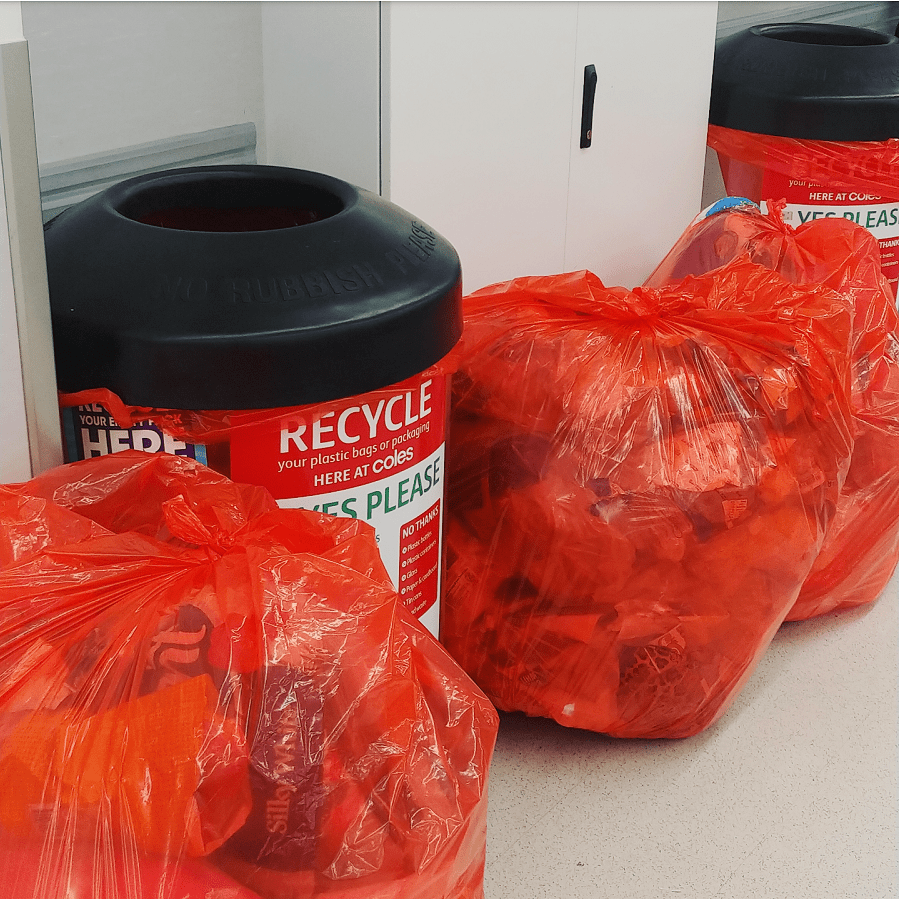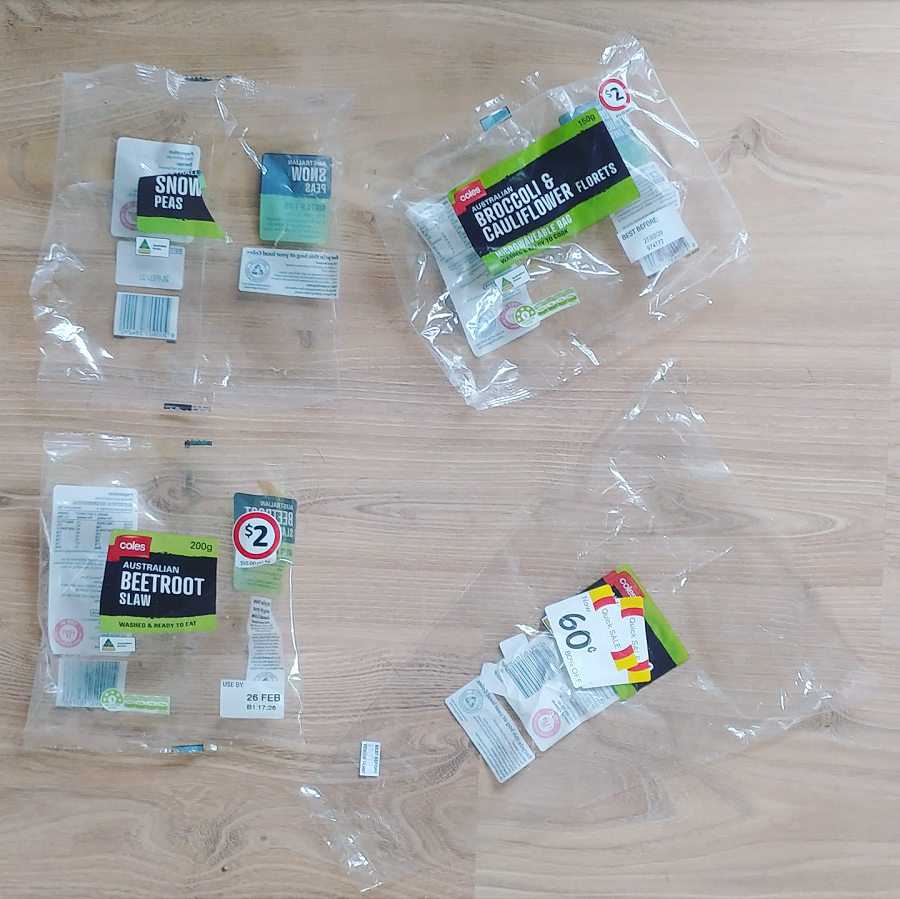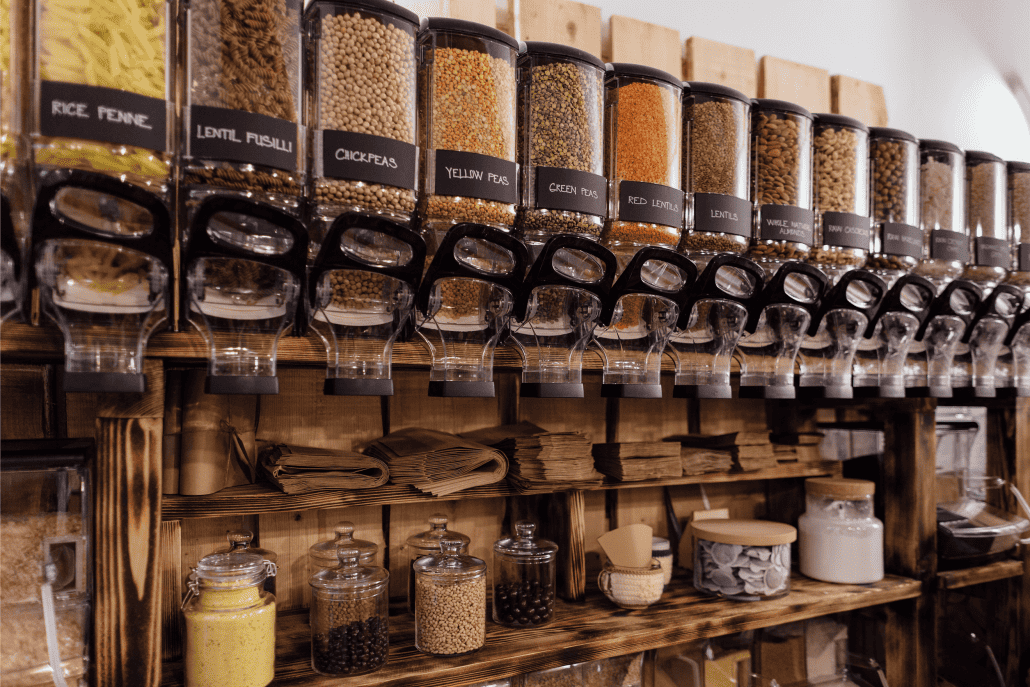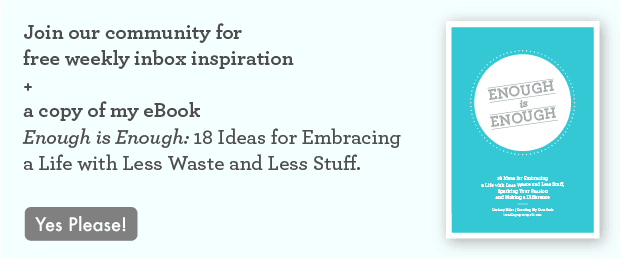REDcycle’s soft plastic collection suspension – and why it might be a good thing
It’s National Recycling Week and everyone is talking about the big news announced yesterday – the news that REDcycle suspended soft plastic collection from Coles/Woolworths stores across Australia. Because of this, soft plastic will no longer be recycled, and instead will be heading to landfill for the foreseeable future.
What is REDcycle?
REDcycle is the main post-consumer soft plastic collection program in Australia – the only one that collects on such a large scale. It was developed and implemented by RED Group, a Melbourne-based consulting and recycling company.
They have more than 2,000 drop-off points at Coles and Woolworths supermarkets around the country. According to the FAQ on their website, they’ve collected over 900 million pieces of soft plastic.

They estimate they collect up to 5 million items PER DAY, equaling 7000 tonnes per year.
Which is a huge amount when we remember that soft plastic really doesn’t weigh very much at all.
Why have REDcycle stopped soft plastic collections?
Demand for soft plastics recycling using REDcycle services has increased 350% since 2019.
But for all this collected plastic, there needs to be buyers: companies who can use this plastic material to make products that they have a market for.
According to media reports, the first issue that REDcycle faced was a fire on the production line at the Close the Loop production line in Melbourne in June 2022. The fire destroyed the production line, and it won’t be replaced and re-operational until 2023.
Close the Loop had apparently been transforming hundreds of tonnes of this soft plastic into an additive and binding agent for asphalt.
The only mass-use end product that REDcycle could find for their recycled soft plastic anywhere in the country was for roads.
Prior to the fire in June, REDcycle had faced an issue with one of their buyers, Plastic Forests, having a change in circumstance and stopping taking plastic from REDcycle in February 2021.
A week before the collection suspension in November 2022, their remaining buyer, Replas (who make garden benches, traffic bollards and play equipment with the plastic) stopped accepting the material, saying they had an oversupply and also that they are planning to phase out the material.
After the June fire, REDcycle had apparently been quietly stockpiling this plastic as they looked for other options. The announcement from Replas seems to have been the final straw, and soft plastic collections have been suspended nationwide.

Why the suspension of REDcycle’s soft plastic collection is not REDcycle’s fault.
It’s frustrating. It’s upsetting. It’s annoying.
We all want to recycle.
We all want to believe that recycling is a magical solution to the problem of waste.

And news like this reminds us that recycling is not magical. It’s imperfect, and reliant on so many external factors. From collection, transporting, sorting, processing, selling, re-manufacturing, there are so many steps and so many stakeholders.
But the suspension of the scheme is not REDcycle’s fault.
This program is run by one company, trying to provide a workable recycling solution for an entire nation’s single-use soft plastic waste.
Single-use soft plastic in volumes that have grown over 350% in three years.
Single-use soft plastic that in numbers was equating to 5 million items every single day.
And it’s estimated by Australia’s Department of Agriculture, Water and the Environment that only 13% of soft plastic is currently recycled.
It’s estimated only 22% of people even knew that they could recycle their soft plastics.
If everyone knew about REDcycle and did recycle their soft plastic, that would equal 38 million soft plastic items per day.
And just this one program, REDcycle, was trying almost single-handedly to reduce this single-use soft plastic problem.
There is no way we can lay the blame on them.
They saw the problem, and tried to do something about it.
But they didn’t create the problem.
The blame squarely lies in the system.
Ultimately the system needs changing.
First of all, whilst the REDcycle program makes our plastic “go away” and makes us feel good that we are recycling, the fact is, it’s being make into asphalt and garden benches and traffic bollards.
It’s not being made back into plastic packaging. It’s going through a single cycle before becoming something that’s no longer recyclable. And these products are not something many of us want to buy.
Most of us take soft plastic to REDcycle at some stage. But how many of us are buying a traffic bollard or a garden bench?
We want to eat bread and crackers and biscuits, and we want to be able to recycle our packaging, but we don’t want to buy the products these items are made into.
That’s a linear model.
It’s not true recycling if we’re not re-cycling the material into the same type of product. It’s downcycling.
However, the producers of plastic packaging love the REDcycle scheme because it puts the emphasis back to us – the shoppers – to do something about the packaging and recycle it.
The sellers of products in single-use plastic packaging love the REDcycle scheme because it looks like they are committed to sustainability via their support for recycling. Actually it’s us doing the work sorting and dropping off the recyclables, and REDcycle collecting and processing the material and trying to find markets.
Rather than look at their packaging, and their systems, and try to reduce their plastic use or change the way they do things, they shift the burden to us and make it our problem to deal with.
When a system like REDcycle fails we feel frustrated and angry and upset because we’re trying to do the right thing.
The REDcycle suspension is a wake-up call that we need system change.
And by “we” I mean society – governments, businesses, organizations and individuals.
We need reuse/return systems, container deposits, buying from bulk and options that don’t create the waste. We need products with less wasteful packaging. We need more affordable and accessible options. We need better infrastructure.⠀

As a society, we’re not buying single-use plastic because we love it. We’re buying it because everything comes smothered in it. We’re buying it because that’s overwhelmingly the option available to us.
Not everyone has access to bulk stores and re-use systems and options when it comes to avoiding plastic. That needs to change.
Whilst schemes like REDcycle are running, the plastic producers can continue with the status quo and tell us it’ll be okay as long as we recycle it.
It’s not okay for businesses to smother products in plastic and then expect shoppers and a handful of companies to bear the costs and effort associated with trying to deal with it.
Despite my disappointment in the suspension of the REDcycle scheme, I feel confident that this shake-up will be a good thing. It’s a wake-up call for companies to re-examine how they package their products, for stores to rethink how they sell their products (and whether they even sell the most over-packaged products at all), for governments to improve infrastructure and increase legislation, and for those of us with accessible low waste options who let some of our good habits slips in the last couple of years, to pick up where we left off.
5 million soft plastic items a day isn’t a recycling problem. It’s an over-consumption problem. It’s an over-consumption problem caused by overproduction and a lack of accessible, affordable alternatives.
We were never going to recycle our way out of this one. And this National Recycling Week, now that recycling is in the news for all the wrong reasons, we have an opportunity as a country to discuss the real solutions for reducing waste and transitioning to a truly circular economy.
Now we’d love to hear from you! How do you feel about the REDcycle collection suspension? Do you use REDcycle regularly, occasionally or do you somehow manage to avoid it altogether? Was it never even an option where you live? Are you someone who let some good plastic-free habits slip away over the past couple of years, or are you someone who simply never had plastic free options in the first place? Do you feel defeated by the announcement? Do you feel confident that this will force a change in a more circular direction? Do you think something else entirely? Please share your thoughts in the comments below!






I am frustrated that I can now longer put my soft plastics in a Redcycle bin and I am one who tries very hard to avoid soft plastic, I have been taking my shopping bags for 30 years, I use mesh bags for fruit and veg, I take a sandwich to work wrapped in beeswax, I try to avoid packaging but often it just is not possible, with some fresh fruit and veg being so expensive or unavailable due to floods I was buying frozen and then putting the plastic in the Redcycle bins. I live in a unit so cannot grow anything on my very small balcony.
I try to do my bit but it is up to industry to use recycled packaging whether it is paper or plastic and working in retail my customers will pay for a bag because they just cannot be bothered bringing their own, there are many people who just do not care.
Hi Kate and thanks for sharing your thoughts! I know you’re not alone in feeling frustrated. I agree, companies need to step up and do more. Doing our bit is all we can do, whereas these companies have the power and resources to do something considerable, if they chose too (or are pushed…)
I don’t like the idea of micro plastic dust coming off our roads so I have been putting soft plastics in the bin for a while. It motivates me to use The Hub in Fairfield (Melbourne) or buy online from Nakedasiangrocer. I try not to buy cheese unless it comes in jars ( Meredith fetta). My supermarket has lots of loose fruit and veg. I have some mesh bags and use mushroom (paper) bags as well. This all takes time and money so I’m privileged to be able to do it.
Thanks for your comment, Ann! I have to say I didn’t know about the asphalt situation until today. But I know here in WA they put glass, demolition waste, tyres, printer cartridges, and goodness knows what else into roads. It seems to be considered the ‘solution’ for every material around!
Yes, some of us are lucky enough to have access to good grocery stores and bulk stores. I can buy almost everything I need without single-use plastic, but it’s not always the cheapest, and I cook everything from scratch, which isn’t accessible to everybody. We need these options to be affordable and accessible if we want them to become mainstream.
Great post Lindsay where you highlight some really important points. I’ve been using REDCycle for a few years and today it was really, really hard to put a soft plastic package in my landfill bin. But, as you have always said, recycling is a great place to start but a terrible place to stop. It isn’t the answer. I have used a bulk store in the past but to be honest I can no longer afford this option. I believe some supermarkets in the UK now have a separate section for you to buy using your own containers and this has to be made mainstream here in Australia. Today at the supermarket I bought oats and red lentils and how I wish I could have just filled my own containers rather than having to buy them in plastic! Governments / organisations badly need to step up but as individuals we also need to consider our own consumption.
Thanks for sharing your thoughts, Carolyn. I’ve been thinking a lot about affordability recently – the cost of everything is going up and it feels like we are being squeezed everywhere. It definitely makes it harder for people to make these choices when bulk or plastic-free options are more expensive. This is why we need supermarkets offering these options too, because they have the buying power to make these options more affordable and accessible .
And yes, our own consumption is a part of it. One part of a very big and complicated problem.
It would be excellent if the big supermarkets had the option of filling your own containers too. It’s very hard for (time and money) poor families to be able to access these options otherwise
Lindsay, you’ve hit the nail on the head. I was using redcycle quite a lot. I feel like something has been stolen from me. I’ve been trying not to think about it, but reading this has made me realise what has been stolen is a scapegoat. The company that took away my guilt.
I have given up on bulk food shopping in the last couple of years. It was costing twice as much and taking a lot of time and planning as the store I was using was an hour away.
I don’t think anything good will come out of this. People like us are one in a million….maybe one in a thousand. Like the last comment from Kate, I think most people don’t care.
Thanks for the post Lindsay, I was grieved to hear the news yesterday- even though we minimise our plastic waste and have the privilege of being lucky enough to be able to afford to shop at a local farmers market and bulk food store. However, when I listened to the reaction today on mainstream radio I think you are right. It’s a real opportunity for the more general public to get a real idea of the problem and start demanding new solutions too. I feel more hopeful that this may shake things up and be a step towards a better long term solution.
My local community notice board was rife with commentary on this today – people complaining that the local council needs to give us bigger bins and more frequent collection as now we can’t use redcycle. I was shocked at the reactions of blame towards redcycle, and the headlines choice words announcing redcycle had a “secret stash”, as if they should be shamed for trying to solve such a massive systemic problem. It made me want to hug and thank everyone at redcycle…
I used to shop almost exclusively without plastic – but as many others have said it has become an unsustainable cost for my family in many cases – so I plan extensively, buy selectively, try to buy in bulk to save on excessive packaging, and make what I can from scratch – perhaps it’s the phase of life with young children or maybe it’s a pandemic-related collective exhaustion, but feels harder than it used to!
Will be revisiting these thoughts for next year for sure. Thanks for your insights :)
The other good thing to come out of this situation is the media spotlight has been shone firmly on the problems of this recycling “solution”. Hopefully that raises some bigger conversations and gets the right people talking. I think supermarkets, corporations and governments should be doing an awful lot more. They relied on a tiny company in Redcycle to be their scapegoat for all this plastic pollution and they really need to step up. Hopefully they will feel the pressure of the collective consumer disappointment and take bigger steps.
Hi Lindsay and TMOP community. I’d been feeling a grief and sadness about this for the last few days, so thank you so much for posting this. I’m heartened to hear from others who are not perfect at being sustainable and Lindsay how you’ve framed it in the bigger picture. I’ll have a think about what else I CAN do to make my enviro footprint smaller now that soft plastic recycling isn’t an option for the near future. I’ll keep trying :)
Great article, Lindsay. I’ve known that (soft plastic) recycling is only a bandaid and not a real solution. You used the word “down cycling” and that describes it very well. But also all the other issues related to it like the sheer amount of soft plastic items being disposed of per day and the corporations using the redCycle scheme to disguise consumers and passing on the responsibility to someone else and just keep producing more and more. This upsets me a lot.
I have also begun emailing all the companies I buy soft plastic packaging from to tell them I can’t buy their products any more because of this. They need this feedback to keep them thinking about the issue.
Hi Lindsay, such a great article! It is very encouraging that there could be an upside to the suspension of this service. When I looked at Redcycle’s announcement, they suggested we could all help by storing our soft plastic until they could resume operation; reducing our use of plastic in general and writing to our local MPs to raise our concerns with them. My email to my MP will be in terms of placing pressure and regulation on producers to reduce and change packaging to sustainable options and also for supermarkets to move to byo containers, similar to bulk food shops.
I hope others might join me and write to their MP, too.
Thanks again, Lindsay!
Hi Lindsay, thanks for the putting this into the context of the bigger picture. I hate the way plastic and waste has become the problem of the end user rather than those who make it and use it. Packaging has become overwhelming but many times we have no choice if we want that item and can’t grow it or make it. And Australia is only one country with a small population.
I love your positive spin here Lindsay!
It’s a devastating blow to those of us who try to recycle, and even more to those at Redcycle who have single handedly attempted a solution to a massive waste issue.
I do hope that pressure is applied in the right direction, toward the corporations packaging in soft plastics and the government to create better sustainable solutions.
I’ve been asking myself what else can be done here, and what can we, as individuals, collectively do to stop this cycle of over production of waste?
Thank you for articulating my thoughts; yep, I used redcycle; but the issue is upstream. So a shake up is needed!
Thanks for this timely post. I was shocked and sad to hear this news, but knew it would happen one day. My local health food store used to sell a variety of bulk food items but stopped after a change of ownership. It made me so mad! As I have a disability and dont drive, shopping at other bulk food stores is more difficult. I have been inspired to write to the company that sells my dog’s food in plastic packets though, so thank you!
Thanks for your well articulated and thoughtful post Lindsay. Brilliant.
I have to say I am so relieved reading the comments. Circumstances in my life have changed and my ability to be as low waste as possible (as i was a couple of years ago) is so diminished. Cost. Time. Accessibility.
The news about Redcycle made me reinspired to push myself harder, but I know I can only do so much. Like you point out though, my guilt is so misplaced when it’s on the consumer
Quite frankly, it’ll be a relief for me as it will save me the job of doing the trip to Coles to ditch the plastic that the rest of my family keep buying but can’t be bothered dealing with. I couldn’t agree more with you: it’s not that we love plastic, it’s just that we are smothered in it.
Loved your thoughts in this article, Lindsay. Thank you for voicing so articulately what I have been thinking.
Great article, thanks. I helped set up REDcycle ( great to work with !), with a few others thru my council ‘in the Melbourne burbs’, not long before supermarkets came on board also. i was devastated to hear the news, and am disgusted with manufacturers, 3 levels of government and industry all ‘greenwashing’ how good they are at recycling, while we do the work ! Things have to change, surely now these organisations will do what should have been done long ago ! Like other replies, I avoid it when possible, use cloth bags, made my produce bags, buy bulk for some items, make my own bread and mayo, etc. Buying Coles bulk nuts (see pic) only works if you reuse the plastic bag ! The only frozen veg I buy is peas, have written to the companies to say I’m stopping, one replied praising the recycling system?!, the other has ignored me !!
So much fruit/veg is cheaper in plastic, which means many shoppers have no choice for their budget.
Brilliant and thought provoking article, thanks Lindsay. I must admit, even though I try to minimise the amount of soft plastic I use, I have been appalled by how much I’ve actually been accumulating and taking to the REDcycle bins. It seems impossible to avoid it. Thanks again for a more hopeful spin on the issue.
This is very helpful, thank you. It has spurred me onto small but hopefully meaningful changes- first stop: homemade icypoles in reusable molds, rather than 10+ ZooperDooper wrappers per week. Anyone have any other small ideas?
Appropriate recycling is essential nowadays. Each of us should take care of our common planet as best we can. Starting from your own home.
?
I appreciate the thorough research you put into this post, keep it up. If you’re looking clothes for Men, Women and Kids. Jabeens Online Store: Discover Pakistani fashion! Shop a wide range of designer suits, lawn collections, and embroidered dresses for women. We are offering styles in chiffon, cotton, khaddar, linen, and jacquard fabrics.